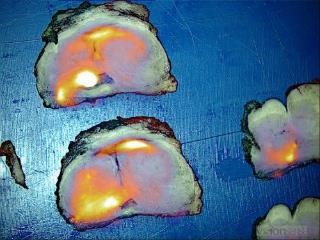For the first time in the Netherlands: Fluorescent light reveals prostate cancer during surgery
18 Aug 2020 10:00
The Netherlands Cancer Institute (NKI) – part of the Dutch Prostate Cancer Network – has started using a new surgical technique as of this month. For the first time in the Netherlands, prostate cancer cells were revealed during robot-assisted surgery using a fluorescent substance. This is part of a new study looking into safe application of a new coloring agent that can detect prostate cancer with a special camera during surgery. These techniques are expected to improve accuracy in detecting and removing cancer cells while sparing the surrounding nerves and organs. The first patients have safely been operated on.
Part of treatment for non-metastatic prostate cancer is surgical removal of the prostate (radical prostatectomy). This surgery is successful when the tumor is removed in its entirety and the patient retains their sexual functions and urinary continence. In 20% of cases, the tumor is not removed in its entirety during prostate surgery. “For the first time, we have revealed prostate cancer using fluorescent light,” says Pim van Leeuwen, urologist at the Netherlands Cancer Institute. “If we can unveil prostate cancer very accurately during surgery, we can take a big step towards increased precision in prostate cancer surgery.”
Research into fluorescent light in surgery for prostate cancer
This new technique has been applied in a study which aims to find out whether the new substance (OTL78: a fluorescent substance that binds to the prostate cancer specific protein PSMA) can be used safely during surgery. The substance is administered intravenously before the operation to light up all prostate cancer cells in the area. The research further investigates whether the prostate cancer and potentially affected lymph nodes are more easily detected with the naked eye during the surgery, allowing the surgeon to distinguish between malignant and benign prostate tissue more easily.
Collaboration with CHDR and LUMC
In this study, the Netherlands Cancer Institute - part of the Dutch Prostate Cancer Network, closely collaborates with the Centre for Human Drug Research (CHDR) and the University Medical Center in Leiden (LUMC). The CHDR and LUMC provide the Netherlands Cancer Institute with the substance OTL78 and the camera for fluorescence detection. At the end of the year, we hope to have treated enough patients to be able to tell whether the substance is usable for us.
Prostate cancer is the most common type of cancer in men in the Netherlands. 13,600 men in the Netherlands are diagnosed with prostate cancer every year.

 nl
nl
 Nederlands
Nederlands